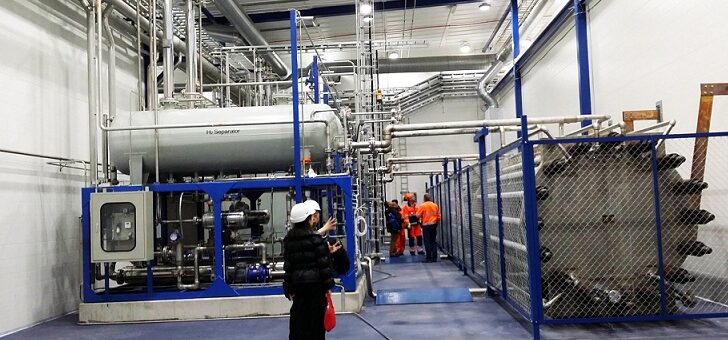
A $4.48M Plan Seeks to Make Cleaner Jet Fuel in Maine
ME – An astonishing investment planned by a startup company at the former Loring Air Force Base could come with promises from large airlines to buy its cleaner fuel even before the technology has been tested at scale.
To say DG Fuels’ plans are ambitious is an understatement. The company is still looking for investors for the plant, which is estimated to cost $4.4 billion. It must build critical infrastructure, including a rail system and pipelines from Limestone to Searsport, some 200 miles away. It is also trying to get a similar plant near New Orleans financed and running by next summer.
If all goes according to plan, construction at Loring will start in 2024 and end in 2027. The new business could bring an economic boost to a part of Aroostook County that desperately needs it. DG Fuels plans to create 650 permanent jobs and 2,300 during construction. It all hinges on a plan to make a type of fuel that is still being tested and has never been produced at high volumes.
The aviation fuel billed as sustainable is in demand by major airlines that need to reduce greenhouse gas emissions. Demand is so great that the total amount of fuel the Louisiana plant is expected to produce has been taken up in “takeoff agreements,” under which fuel is effectively sold before it is produced. Delta and Air France signed on before a shovel went into that ground. DG Fuels expects to announce similar agreements for the Loring plant soon, CEO Michael Darcy said. He would not specify the nature of the arrangements and whether they included upfront money. Having such agreements helps attract investors, he said. He expects to bring in private and government investors and lenders as well.
Darcy, who has a background in the shipping industry, is an entrepreneur who likes to exploit innovative business opportunities. Other management at the company includes President Christopher Chaput, who has a background as an investor in the aviation sector, and Michael Horner, the executive vice president of technology, who has experience with aircraft jet engines and aircraft-derived gas turbines. The company plans to make clean aviation fuel using biomass, which could come from forests or farms. It uses a process developed initially in Nazi Germany during World War II to turn coal into diesel fuel. The series of chemical reactions convert a mixture of carbon monoxide and hydrogen into liquid hydrocarbons, which can be further processed into clean fuel. The company has an agreement with Norwegian firm Hydrogen Pro to supply equipment to help make the fuel.